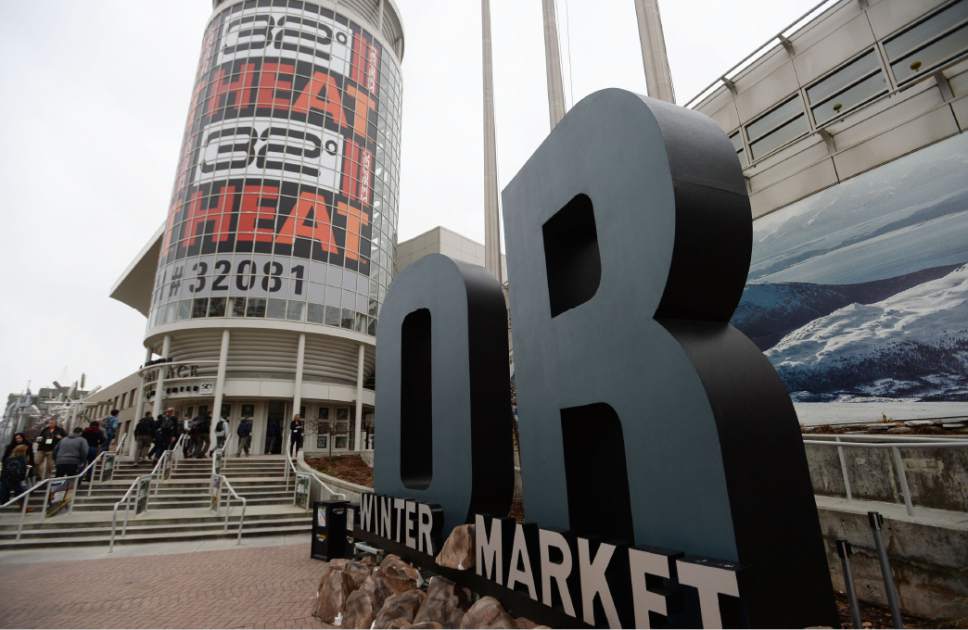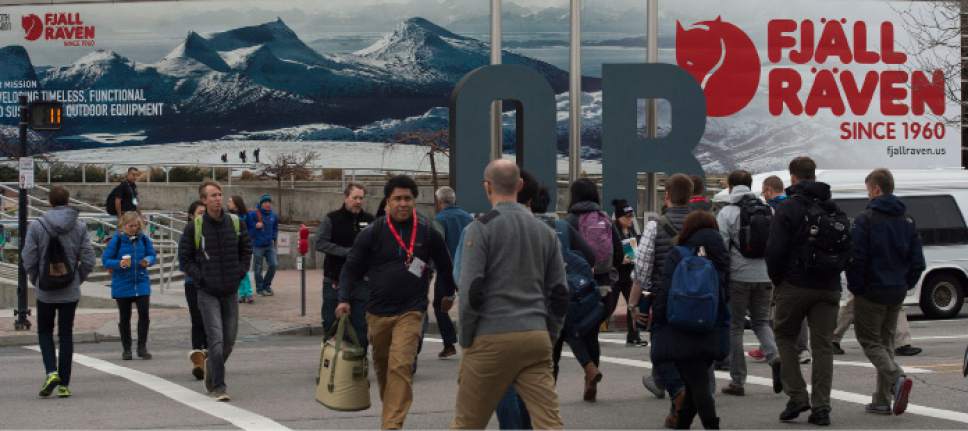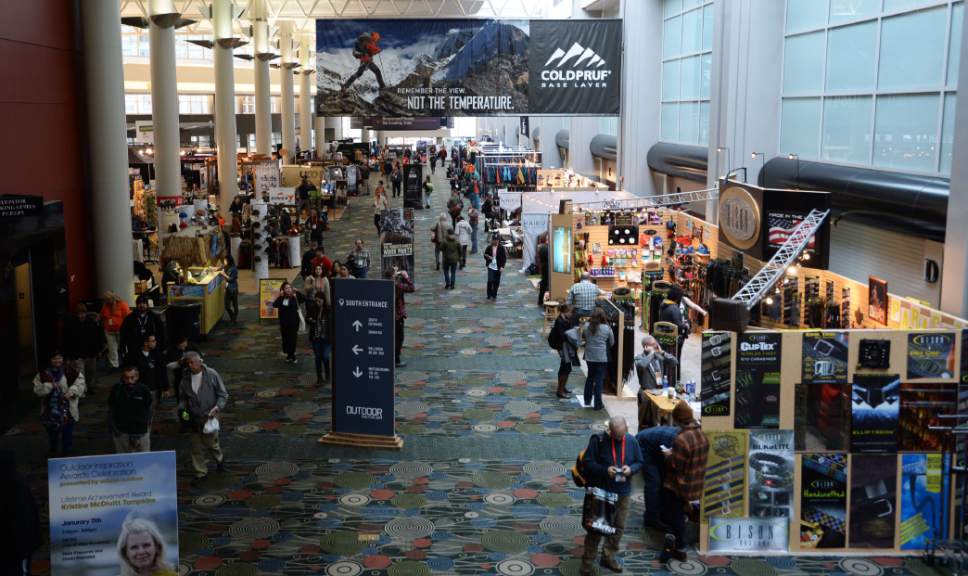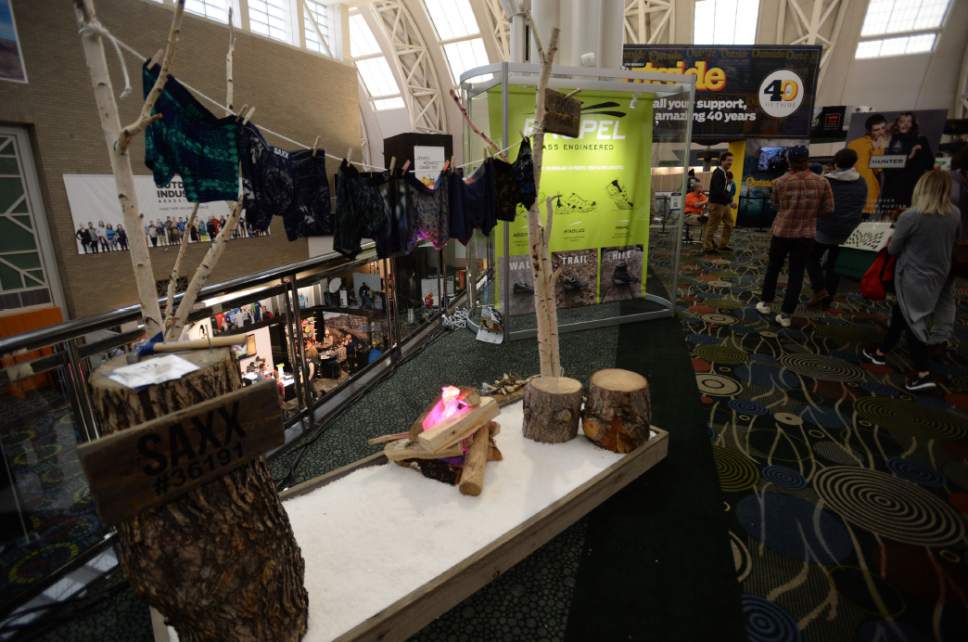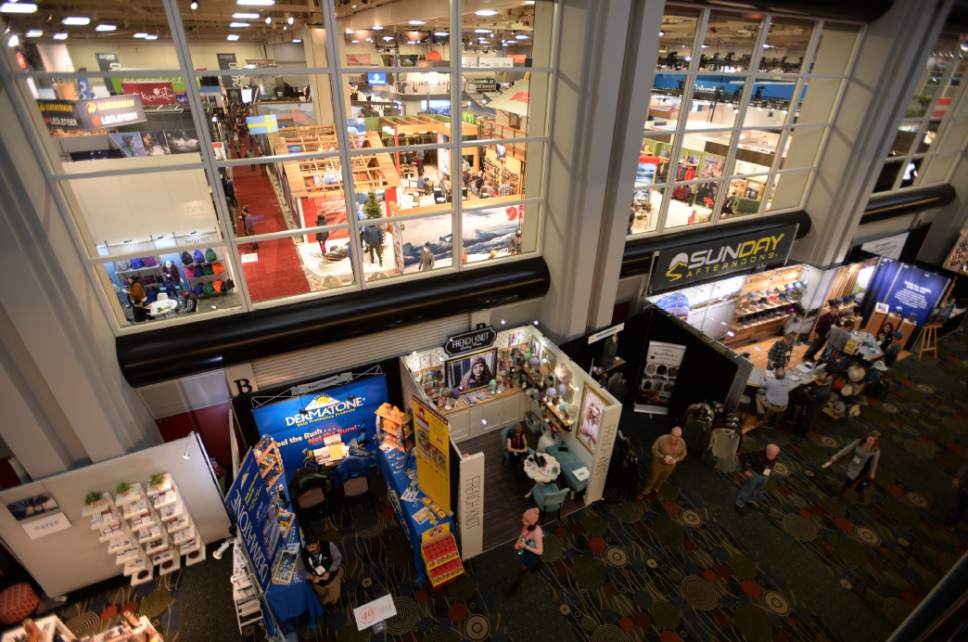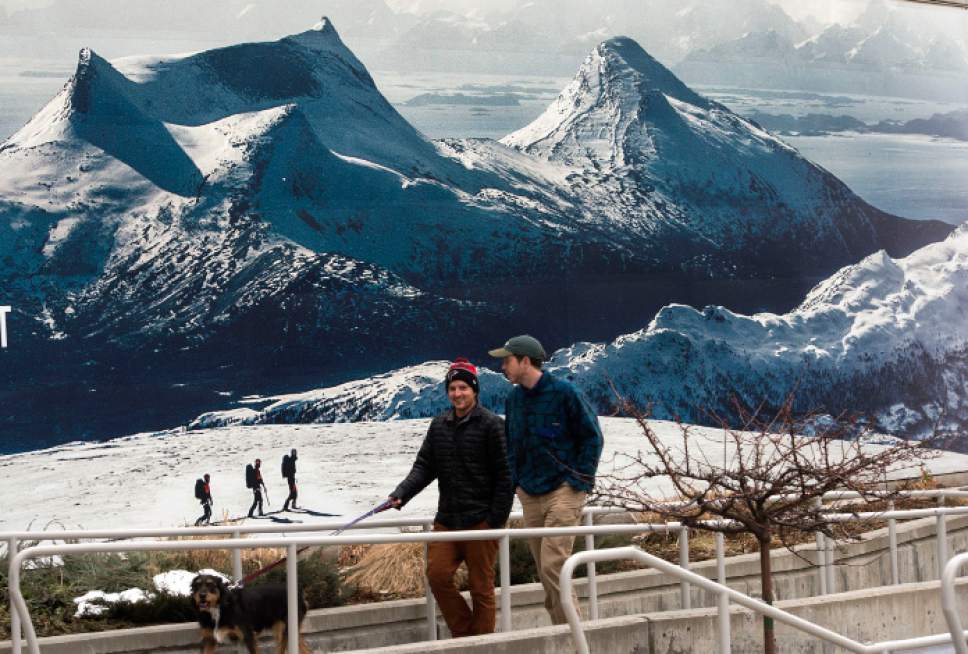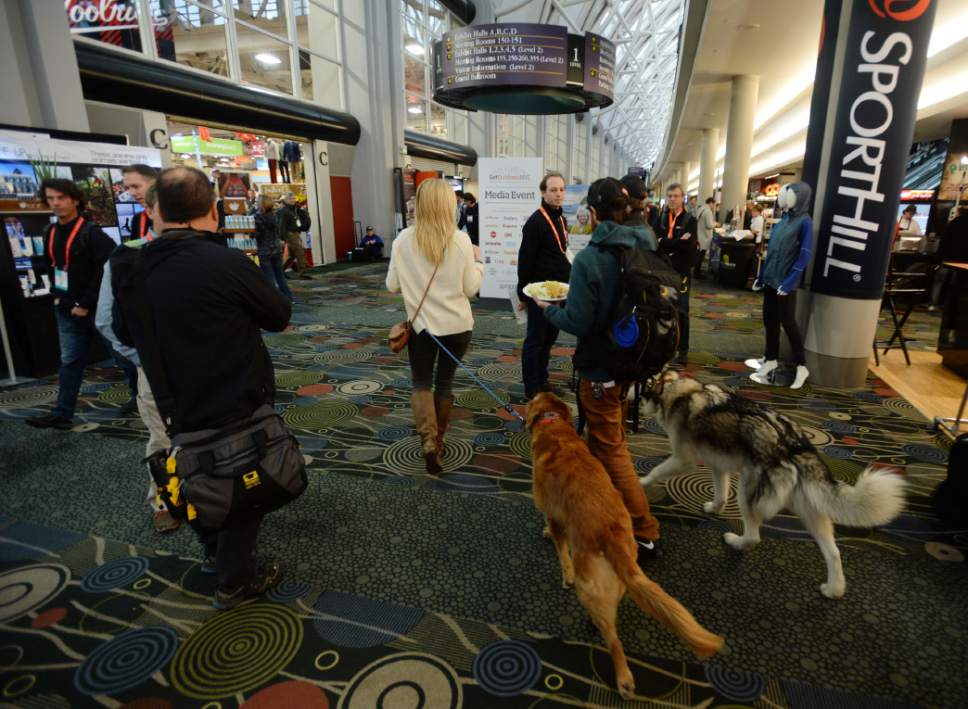This is an archived article that was published on sltrib.com in 2017, and information in the article may be outdated. It is provided only for personal research purposes and may not be reprinted.
As a top recreation-industry executive called Tuesday for the Outdoor Retailer show to leave Salt Lake City, Utah Gov. Gary Herbert sought to push back against his critiques of state land policy.
On the opening day of the twice-yearly retailers show, the founder of Black Diamond Equipment called for the convention to depart "in disgust" after more than 20 years here, saying state political leaders' approach amounted to a concerted attack on Utah landscapes he called "beautiful, varied, wild and iconic."
"Gov. Gary Herbert and Utah's D.C. delegation are leading a national all-out assault on the sanctity of Utah and the country's public lands," Peter Metcalf wrote in an op-ed that appeared Tuesday in The Salt Lake Tribune. "...This agenda is antithetical to our industry, let alone the majority of our citizens regardless of party affiliation."
Metcalf condemned moves by Utah's congressional delegation to "take down our newest national monument, Bears Ears, gut the Antiquities Act, starve funding from federal land management agencies and transfer our country's public lands to state ownership."
In advance of President Obama's designation of Bears Ears National Monument in December, Utah Rep. Rob Bishop began talks with Trump's transition team exploring the unprecedented measure of undoing a national monument designation.
"There is no all-out-assault against Utah's public lands," Herbert's deputy chief of staff Paul Edwards said in a statement. "Gov. Herbert has been clear that Utah is, always has been, and always will be a public lands state.
"What concerns Gov. Herbert is the process that has been used to make public lands decisions," Edwards said. "Good decisions would include the right people and take into account all the unique characteristics associated with Utah's varied landscape."
Herbert's office "has enjoyed a strong and productive relationship with the Outdoor Retailer trade show for decades," said Edwards. "We look forward to continually working in tandem with this important sector of the economy to ensure that Utah's extraordinary landscape and scenic beauty is enjoyed for generations to come."
Bishop declined to comment on Metcalf's remarks.
Convention planners did not immediately address how Metcalf's statement may affect the trade show's future in Utah, saying they will "continue to listen to members and show attendee feedback on both the appropriate venue for the show as one factor along with considering the need to have the show in a location that meets the business requirements of the industry."
"Utah has some of the most beautiful landscapes and waterways in the world," Outdoor Retailer show organizers and the closely-associated Outdoor Industry Association wrote in a joint statement. "We've always had an open and honest relationship with the governor and the congressional delegation, but we must be clear that protection of America's public lands, including those in Utah, are critical and any threat to their protection is a threat to the outdoor industry."
This is not the first time outdoor industry leaders have discussed transfering the Outdoor Retailer to another state in reaction to Utah's public-lands politics.
In 2004, the group threatened to move the convention after then-Gov. Mike Leavitt cut a deal with federal officials to remove wilderness protections for 6 million acres of federal land. Leavitt then created a task force on outdoor recreation in Utah, and local governments agreed to expand the Salt Palace — which hosts the show — to appease the group.
In 2012, the head of the Outdoor Industry Association met with Herbert and chastised state efforts to take control of 31 million acres of federal lands in Utah as well as its role in legal disputes over roads in wilderness areas.
Metcalf, in another op-ed, accused Herbert of "killing the goose that laid the golden egg," prompting the governor to ask him to resign from a state ski-industry working group.
In 2015, when the convention's contract last was up for renewal, organizers again said they were considering other cities to host the shows, which they say bring at least $40 million and more than 45,000 visitors annually to the state economy. The convention has grown rapidly since it first came to Utah in 1996, and crowding has been an ongoing issue.
But two-thirds of attendants surveyed in 2015 said they wanted the show to remain in Salt Lake City, and the shows will continue here at least through 2018.
This year's Summer Market will take place July 25-28.
The Winter Trade Show, which runs until Thursday at the Salt Palace Convention Center, was expected to bring 1,100 retailers and 22,000 visitors to downtown Salt Lake City.
Metcalf called Utah's public lands agenda an "existential threat" to the outdoor industry, and by keeping the show here, industry members are "complicit collaborators in our own demise."
"It's time," he wrote, "for the industry to again find its voice, speak truth and power to power while making it clear to the governor and the state's political leadership that this trade show will depart with the expiration of the current contract in 2018 unless the leadership ceases its assault on America's best idea."
Twitter: @erinalberty


